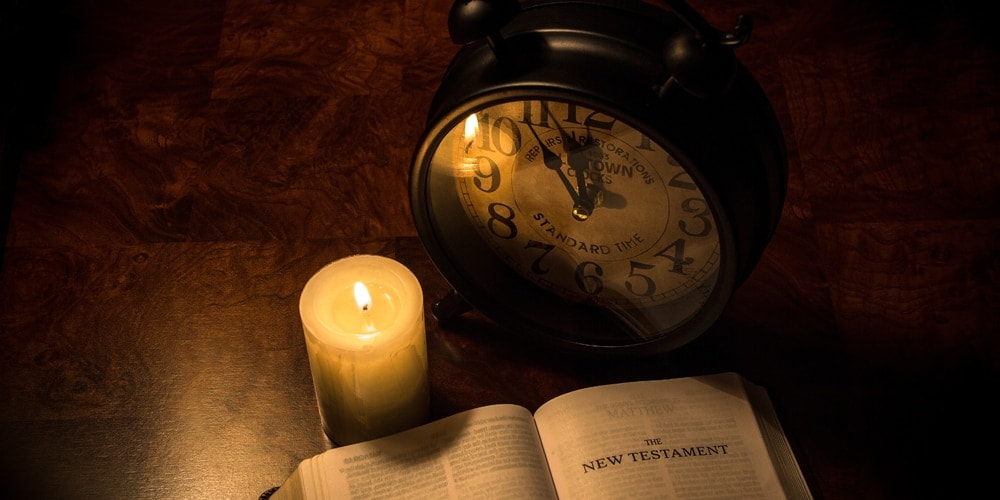
Jesus’ healing the man blind from birth is one of Scripture’s most astonishing stories. On a number of levels, actually.
First, the healing itself. “After saying this, [Jesus] spit on the ground, made some mud with the saliva, and put it on the man’s eyes. ‘Go,’ he told him, ‘wash in the Pool of Siloam’ (this word means ‘Sent’). So the man went and washed, and came home seeing” (John 9:6, 7).
To mix spit with dirt, to rub the mixture on his eyes, to tell him to go wash in a pool, and the man, probably a teenager—can now see? Jesus didn’t heal just his eyes (his eyes themselves might not have been the problem); Jesus had to restore billions of neurons as well. What, in the annals of human knowledge, in the clichés of science, in the formulas of natural law can explain what happened (our disciplines might not have the vocabulary)? This first century event reveals the paucity of our twenty-first century grasp of reality.
Second, the pharisaical reaction to the miracle. “They brought to the Pharisees the man who had been blind. Now the day on which Jesus had made the mud and opened the man’s eyes was a Sabbath. Therefore the Pharisees also asked him how he had received his sight. ‘He put mud on my eyes,’ the man replied, ‘and I washed, and now I see.’ Some of the Pharisees said, ‘This man is not from God, for he does not keep the Sabbath’” (John 9:13-16).
Here before them was one of the greatest revelations of the power and character of God since, perhaps, Sinai (“Since the world began it has been unheard of that anyone opened the eyes of one who was born blind” John 9:32, NKJV). Yet the souls of these men were so stale and crusted over by the dogma of their traditions that, because Jesus did it on the Sabbath, they missed what this miracle revealed. Zeal for the trivial blinded them to the divine.
More than once, too. The Gospels show what happened when human tradition and man-made rules conflicted with the Word of God, specifically the Word of God regarding the seventh-day Sabbath. Don’t miss the point: the seventh-day Sabbath versus human tradition was central to many of the controversies between Jesus and the powers-that-be.
In Matthew 12 Jesus was attacked by the authorities over the seventh-day Sabbath regarding a relatively minor matter. In the same chapter Jesus healed a man with a withered hand (verse 13), another miracle that defied natural law. And how did religious leaders respond to this astonishing expression of God’s power? “The Pharisees went out and plotted how they might kill Jesus” (Matt. 12:14).
Death because of the seventh-day Sabbath?
Then there’s the woman “crippled by a spirit for eighteen years” (Luke 13:11), and on the seventh-day Sabbath Jesus healed her, much to the chagrin of the establishment.
In another seventh-day Sabbath healing, Jesus went into the home of a Pharisee to eat, but when He was there “they watched Him closely” (Luke 14:3). Why? To marvel at the glory of God revealed in Jesus, or to find more reasons to persecute Him?
In John 5, “because Jesus was doing these things on the Sabbath, the Jewish leaders began to persecute him” (verse 16). (See also John 7:16-23.)
Persecution, death even, because of human tradition versus the seventh-day Sabbath? Sound familiar?
As we understand the book of Revelation, people will worship either the Creator (Rev. 14:7), or the beast and his image (Rev. 13:15; 14:9). And because God’s people are depicted as, among other things, keeping the “commandments of God” (Rev. 12:17; 14:12), which includes the only commandment about God as Creator (Ex. 20:8-11), and which happens also to be the same commandment that the beast power attempted to change (Dan. 7:25)—it’s no wonder that the seventh-day Sabbath, as opposed to human tradition (Sunday sacredness), will become a crucial issue.
Every Christian doctrine rests upon the doctrine of creation. Atonement, the cross, sin, salvation, none make sense apart from God as Creator. Creation is the most foundational Christian teaching because on it sit all other Christian teachings. And the seventh-day Sabbath, embedded in Creation itself (Gen. 2:1-3), remains the most foundational expression of that most foundational doctrine.
Creation is so important that God demands one-seventh of our lives, every week without exception, to remember it—something required for no other teaching, because no other teaching has validity apart from this one. Also, God’s memorial of creation doesn’t exist at a place or in an object that we have to go to (a holy hill, holy mountain, or holy city); instead, God’s memorial of creation comes directly to us every week (at about 1,000 miles per hour), and without exception.
Hence, to usurp the most basic sign (the seventh-day Sabbath) of the most basic doctrine (creation) is an attempt to usurp the Lord’s authority at the most basic level possible: Him as Creator.
The only level more basic is God Himself.
When we consider how fundamental worship of the Creator is to Christianity, and that the seventh-day Sabbath is foundational to this truth, it’s hard to see how the controversy about worship in the last days could center around anything else but. And though specific issues differ (how to keep the day as opposed to which day)—the principle behind this controversy, i.e., that of human traditions versus the seventh-day Sabbath, is reflected, even foreseen, in Jesus’ experiences as well.
Clifford Goldstein is editor of the Adult Sabbath School Bible Study Guide. His latest book, Baptizing the Devil: Evolution and the Seduction of Christianity, is available from Pacific Press.